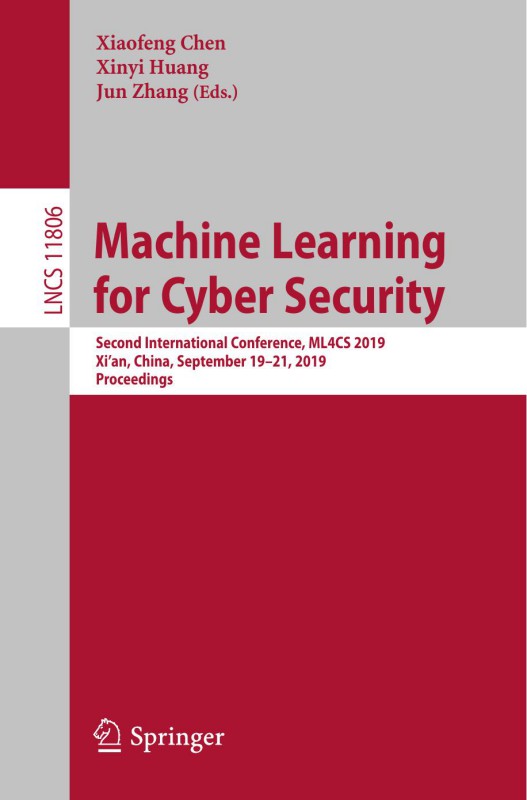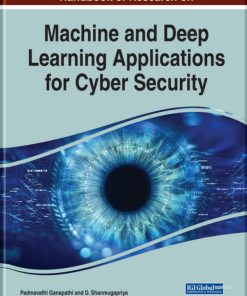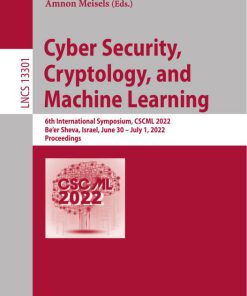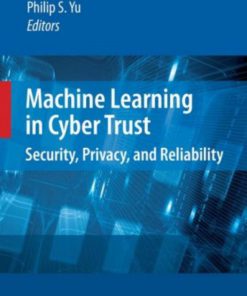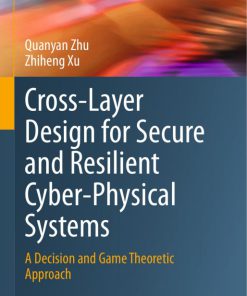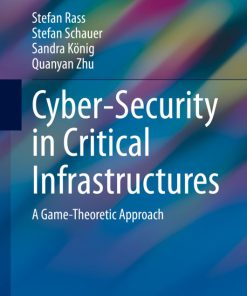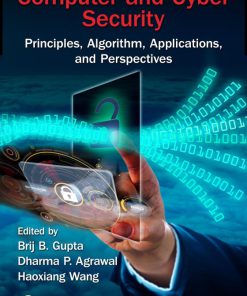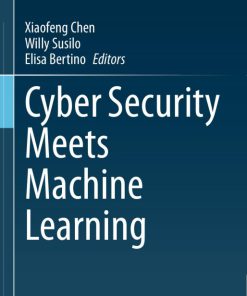Game Theory and Machine Learning for Cyber Security 1st Edition by Charles Kamhoua, Christopher Kiekintveld, Fei Fang, Quanyan Zhu
Original price was: $50.00.$25.00Current price is: $25.00.
Authors:Charles A. Kamhoua; Christopher D. Kiekintveld; Fei Fang; Quanyan Zhu , Series:Cyber Security [145] , Tags:Technology & Engineering; Telecommunications; Electrical , Author sort:Kamhoua, Charles A. & Kiekintveld, Christopher D. & Fang, Fei & Zhu, Quanyan , Ids:Google; 9781119723929; DOI , Languages:Languages:eng , Published:Published:Sep 2021 , Publisher:John Wiley & Sons , Comments:Comments:GAME THEORY AND MACHINE LEARNING FOR CYBER SECURITY Move beyond the foundations of machine learning and game theory in cyber security to the latest research in this cutting-edge field In Game Theory and Machine Learning for Cyber Security, a team of expert security researchers delivers a collection of central research contributions from both machine learning and game theory applicable to cybersecurity. The distinguished editors have included resources that address open research questions in game theory and machine learning applied to cyber security systems and examine the strengths and limitations of current game theoretic models for cyber security. Readers will explore the vulnerabilities of traditional machine learning algorithms and how they can be mitigated in an adversarial machine learning approach. The book offers a comprehensive suite of solutions to a broad range of technical issues in applying game theory and machine learning to solve cyber security challenges. Beginning with an introduction to foundational concepts in game theory, machine learning, cyber security, and cyber deception, the editors provide readers with resources that discuss the latest in hypergames, behavioral game theory, adversarial machine learning, generative adversarial networks, and multi-agent reinforcement learning. Readers will also enjoy: A thorough introduction to game theory for cyber deception, including scalable algorithms for identifying stealthy attackers in a game theoretic framework, honeypot allocation over attack graphs, and behavioral games for cyber deception An exploration of game theory for cyber security, including actionable game-theoretic adversarial intervention detection against advanced persistent threats Practical discussions of adversarial machine learning for cyber security, including adversarial machine learning in 5G security and machine learning-driven fault injection in cyber-physical systems In-depth examinations of generative models for cyber security Perfect for researchers, students, and experts in the fields of computer science and engineering, Game Theory and Machine Learning for Cyber Security is also an indispensable resource for industry professionals, military personnel, researchers, faculty, and students with an interest in cyber security.

